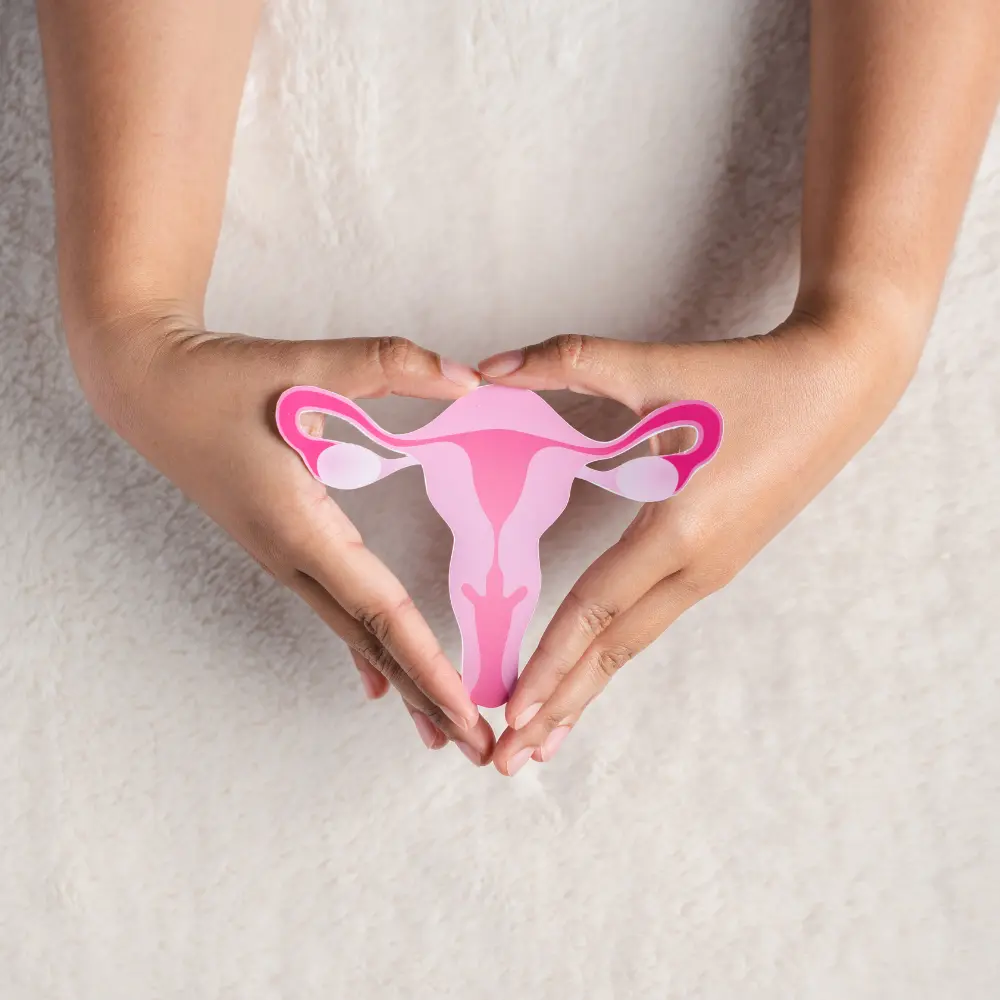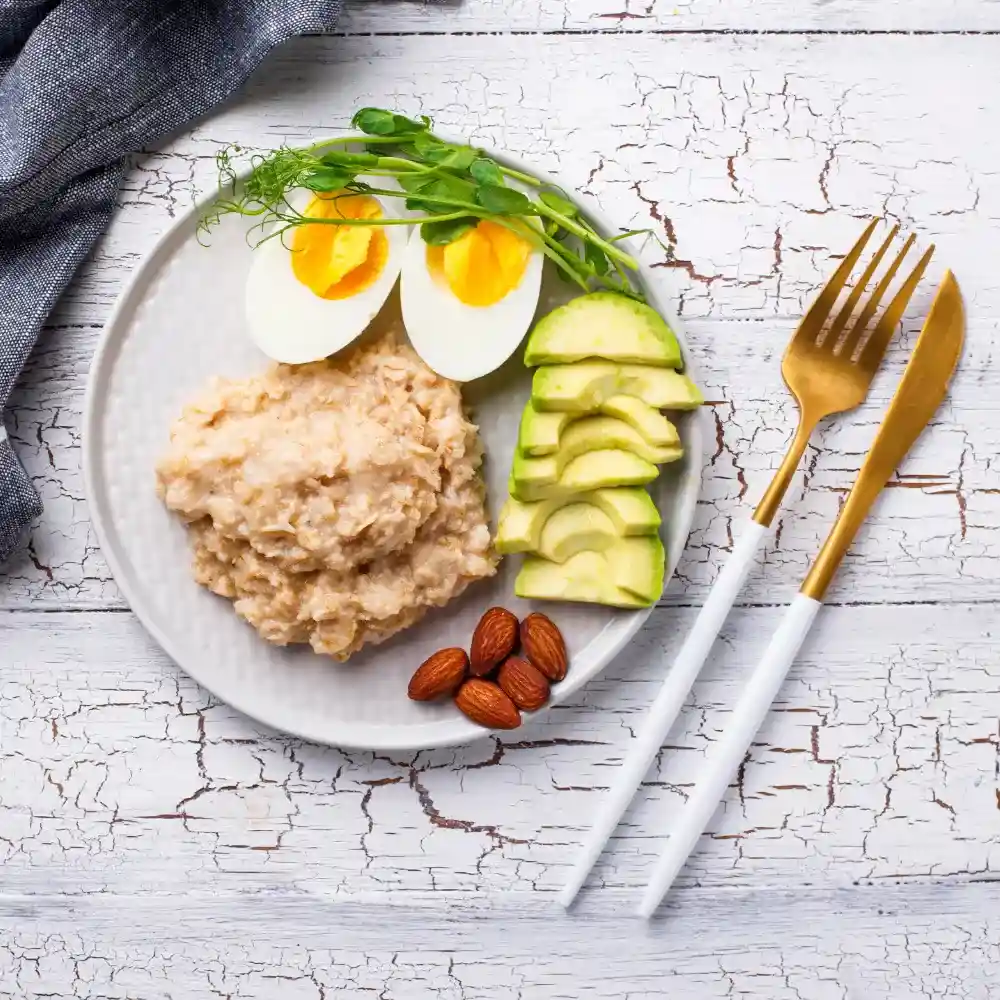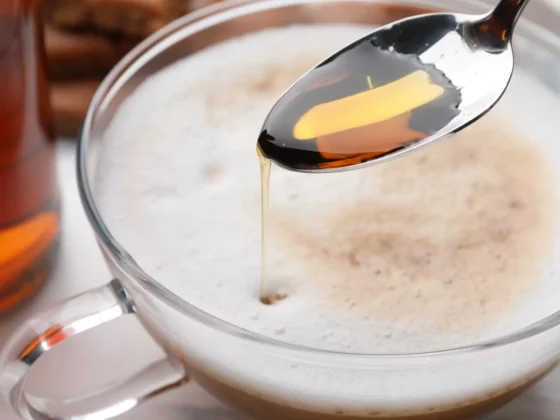When it comes to navigating the often choppy waters of our menstrual cycles, it seems every woman has her own set of rituals and coping mechanisms. One question, however, that often stirs up a brew of debates is: “Can you drink coffee on your period?” It’s a topic that pairs an everyday habit with a monthly cycle that every woman knows all too well.
While coffee is a beloved beverage for many, providing that much-needed morning jolt or serving as a comforting afternoon pick-me-up, its relationship with our menstrual health is more complex than you might think. Does it soothe or exacerbate symptoms? Does it help or hinder? The question of whether you can – and indeed should – drink coffee during your period is as multifaceted as the women asking it.
In this comprehensive guide, we’re going to percolate on this very subject, exploring the potential effects of drinking coffee during your menstrual cycle, with insights from experts and a dash of scientific research. We’ll look at the potential pros and cons, listen to the experiences of real women, and even consider some alternatives for those who might want to rethink their ritual cup of joe during that time of the month. So grab a comfy seat and your preferred beverage, it’s time to dive into the intricate world of coffee and menstrual health.
Coffee on Periods: Key Takeaway
- Individual Response: The effects of coffee during menstruation are highly individual. Some women might experience increased discomfort, while others feel no difference. Listening to your body is key.
- Pros and Cons: Coffee during menstruation can have both potential benefits, like increased alertness and antioxidant intake, and potential downsides, such as dehydration, increased stress hormones, and disrupted sleep.
- Alternatives to Coffee: If you’re considering reducing your coffee intake during your period, options like decaffeinated coffee, herbal teas, and healthy smoothies can be excellent alternatives that provide comfort and even an energy boost.
- Lifestyle Factors: Beyond coffee consumption, lifestyle factors like a balanced diet, regular exercise, and effective stress management techniques play a significant role in overall menstrual health and comfort.
- Expert Opinions and Research: Opinions on coffee consumption during menstruation vary among experts, and research findings are mixed. It’s a good idea to consult with a healthcare professional if you’re unsure about your caffeine intake during your period.
The Physiology of Menstruation and Coffee’s Role
The menstrual cycle and the effects of coffee on the body are complex processes, each with its unique dynamics. To fully understand the relationship between them, it’s important to have a basic understanding of both.
What Happens in Your Body During Menstruation
Menstruation is a natural part of the reproductive cycle. On average, it occurs every 28 days but can vary from woman to woman. The process is regulated by a series of hormonal changes, primarily involving estrogen and progesterone. (1) During the first half of the cycle, the levels of estrogen rise, leading to the thickening of the uterus lining in preparation for potential pregnancy.

After ovulation, which generally happens around day 14, the hormone progesterone takes center stage, maintaining the uterus lining for the fertilized egg. If pregnancy doesn’t occur, estrogen and progesterone levels drop, leading to the shedding of the uterus lining, commonly known as the menstrual period. During this time, many women experience symptoms such as cramping, bloating, mood swings, and fatigue, which are commonly associated with Premenstrual Syndrome (PMS).
The Effects of Caffeine on the Female Body
Caffeine, the primary active ingredient in coffee, is a stimulant that affects the central nervous system. It works primarily by blocking adenosine receptors in the brain, which helps prevent the onset of drowsiness and can enhance feelings of alertness and energy. (2)

However, caffeine also has other effects. It can increase heart rate, trigger the release of stress hormones, and even cause jitteriness and anxiety in larger doses. It is also a diuretic, encouraging the kidneys to remove more water from the body, which can lead to dehydration if not balanced with adequate fluid intake.
How Coffee Interacts with Menstrual Hormones
The interaction between coffee and menstrual hormones is an area of active research, and while the full picture is yet to be drawn, we do have some insights.
Caffeine is metabolized in the liver using enzymes that are regulated by the hormone estrogen. The level of estrogen during different phases of the menstrual cycle can affect how quickly or slowly caffeine is processed in the body. This means that the effects of caffeine could potentially be felt more strongly at certain times of your cycle, depending on your hormonal fluctuations.

Furthermore, caffeine can influence the production and activity of certain hormones that are directly involved in the menstrual cycle. For instance, it has been suggested that caffeine can increase levels of cortisol, the body’s primary stress hormone, which can exacerbate feelings of stress or anxiety often associated with PMS.
Understanding these interactions and how they can vary from person to person is key to making informed decisions about coffee consumption during your menstrual cycle. As we explore the potential pros and cons, remember that everyone’s body is different, and what works for one woman may not work for another. Always listen to your body and consider consulting with a healthcare professional if you have specific concerns.
The Pros and Cons of Drinking Coffee During Your Period
Just like any other dietary choice, the consumption of coffee during menstruation comes with a set of potential benefits and drawbacks. It’s important to remember that every woman’s body is unique, and individual reactions to caffeine can vary greatly. Here, we will explore some of the potential pros and cons of drinking coffee during your menstrual cycle.
Potential Benefits of Coffee Consumption
While the thought of coffee might bring comfort and joy to many of us, some physiological benefits could be particularly helpful during menstruation.
One of the most well-known effects of coffee is its ability to increase alertness and decrease the perception of fatigue, thanks to its caffeine content. This can be particularly beneficial during menstruation when many women report feeling more tired or sluggish than usual.

Coffee is also a source of antioxidants, which can help fight inflammation and protect your cells from damage. Some research even suggests that coffee can help with digestion and potentially alleviate constipation, a common symptom of PMS.
Furthermore, a warm cup of coffee might simply provide a comforting ritual or moment of self-care, which shouldn’t be underestimated, particularly during the potentially challenging days of your period.
Possible Downsides of Caffeine Intake
Despite its potential benefits, coffee consumption during menstruation isn’t without potential drawbacks. As mentioned before, one of the main considerations is its diuretic effect, which can exacerbate dehydration, especially if your fluid intake isn’t sufficient. Dehydration can, in turn, worsen menstrual symptoms like headaches and fatigue.

Caffeine can also increase the production of stress hormones such as cortisol, which could potentially intensify feelings of stress, anxiety, or mood swings that are often associated with PMS. (3) Additionally, some women might find that coffee can exacerbate period-related digestive issues, like bloating or diarrhea.
Another potential downside of coffee consumption during menstruation is its potential impact on sleep. Many women already experience disrupted sleep during their period, and the stimulating effects of caffeine, particularly if consumed later in the day, could further interfere with sleep patterns.
Balancing Coffee Consumption and Your Menstrual Health
Navigating the decision to drink coffee during your period ultimately boils down to understanding your body and its unique response to caffeine. Listen to your body and observe how it reacts. If you find that coffee alleviates certain symptoms or simply brings you comfort, it could very well be a part of your menstruation toolkit. However, if you notice that coffee seems to exacerbate certain symptoms, it might be worth exploring some alternatives, or at least reducing your intake.

Always remember, balance is key. Moderation in coffee consumption, staying hydrated, and maintaining a healthy diet can all contribute to more comfortable periods. And as always, if you’re unsure or have specific health concerns, don’t hesitate to consult with a healthcare professional. It’s your body and your menstrual cycle, so making informed choices that work for you is the most important thing.
Alternatives to Coffee During Your Period
If you’ve noticed that coffee exacerbates your period symptoms or you’re simply interested in exploring other beverage options during menstruation, you’re in luck. Numerous healthful and delicious alternatives can provide comfort, hydration, and even an energy boost without the potential downsides of caffeine.
Healthy, Energizing Drinks for Period Days
If the energy boosts from coffee are what you’re after, there are several other drinks you might want to try. Green smoothies, for example, can be a fantastic source of energy. They’re packed with vitamins and minerals that can help fight fatigue and keep you feeling your best. Try blending spinach, kale, a banana, and some berries with a little almond milk for a refreshing and energizing treat.

Another excellent option is fresh fruit juice, particularly those high in vitamin C, like orange or grapefruit juice. Vitamin C can help with iron absorption, a crucial factor for those who experience heavy bleeding. Just remember that while fruit juices can be healthy, they are also high in sugar, so moderation is key.
Decaffeinated Coffee: A Worthwhile Option?
If you love the taste of coffee but are looking to limit your caffeine intake during your period, decaffeinated coffee could be an excellent choice for you. Decaf coffee provides a familiar, comforting taste without the potential menstrual discomfort associated with caffeine.

However, it’s important to note that decaf doesn’t mean caffeine-free. Most decaf coffees still contain some caffeine, although the amounts are much lower. If you’re particularly sensitive to caffeine, you’ll want to keep this in mind.
Herbal Teas and Their Benefits
Herbal teas can be a soothing and beneficial choice during your menstrual cycle. For example, chamomile tea is known for its calming properties and can help ease menstrual cramps. (4) Peppermint tea can help alleviate bloating and stomach discomfort, while ginger tea may help reduce nausea and inflammation.

Raspberry leaf tea is another excellent choice during menstruation. It’s often recommended for its potential to soothe cramps and regulate menstrual flow, thanks to its rich content of fragarine and tannins.
Remember, everyone is different, and it might take some experimentation to find what works best for you. Whether you choose to stick with coffee, switch to an alternative, or mix and match depending on the day, the most important thing is to listen to your body and make choices that support your overall well-being.
Tailoring Your Lifestyle for Optimal Menstrual Health
While the question of whether to drink coffee during your period is an important one, it’s also crucial to consider other lifestyle factors that can influence menstrual health. Exercise, diet, and stress management all play a significant role in how you feel during your period and can be tailored to help support optimal menstrual health.
Exercise and Menstruation: What You Need to Know
Exercise is a powerful tool for managing menstrual discomfort. Regular physical activity can help to reduce menstrual pain, alleviate PMS symptoms, and even regulate irregular cycles. That’s because exercise helps to reduce inflammation, improve mood, and increase circulation, all of which can be beneficial during your period.

However, the type of exercise you engage in might need to vary depending on where you are in your cycle. High-intensity workouts might feel great during your follicular phase (the first half of your cycle), but restorative practices like yoga or light walking might be more appropriate during menstruation when energy levels often dip. As always, listen to your body and give it what it needs.
The Importance of a Balanced Diet During Your Period
Your diet plays a critical role in how you feel during your period. Consuming a balanced diet rich in fruits, vegetables, whole grains, and lean proteins can provide the nutrients your body needs to function at its best during menstruation.

Certain nutrients can be particularly beneficial. For instance, iron-rich foods like leafy greens and lean meats can help to replenish iron stores lost through bleeding. Foods high in magnesium, such as nuts and seeds, can help to alleviate cramps. And don’t forget about hydration—drinking plenty of water is crucial, especially if you’re drinking coffee or other caffeinated beverages.
Stress Management Techniques for Easing Menstrual Discomfort
Managing stress is another key component of menstrual health. High-stress levels can exacerbate PMS symptoms and even lead to menstrual irregularities. Incorporating stress management techniques into your routine can help to ease menstrual discomfort and promote overall well-being.

Mindfulness practices, such as meditation or deep breathing exercises, can be particularly effective. These techniques can help to lower cortisol levels, reduce inflammation, and promote a sense of calm. Other stress management strategies might include getting plenty of sleep, maintaining a positive social network, and engaging in hobbies or activities that you enjoy.
Remember, your menstrual health is a reflection of your overall health. By taking care of your body through regular exercise, a balanced diet, and effective stress management, you can help to ensure that your menstrual cycle is as comfortable and manageable as possible, coffee or no coffee.
Conclusion
Navigating the complexities of menstrual health can be challenging, and the question, “Can you drink coffee on your period?” only adds to this complexity. However, as we’ve explored in this article, the answer isn’t a simple yes or no. It’s highly individual and depends on your unique body and how it reacts to caffeine during menstruation.
From understanding the physiological relationship between menstruation and coffee to considering the pros and cons of coffee consumption during your period, it’s clear that there’s a lot to consider. We’ve also discussed various alternatives to coffee and lifestyle changes that can help you maintain optimal menstrual health.
At the end of the day, the most important takeaway is to listen to your body. If you notice any discomfort or changes related to coffee consumption during your period, it may be worthwhile to adjust your habits or consult a healthcare professional.
Remember, coffee is just one piece of the puzzle when it comes to menstrual health. Incorporating regular exercise, a balanced diet, and stress management techniques can make a significant difference. So, whether you choose to enjoy your cup of joe during your period or opt for an alternative, ensure that it’s part of a holistic approach to your menstrual wellness.
FAQ
What are the potential benefits and risks of drinking coffee during my period?
The benefits of drinking coffee during your period can include increased alertness, antioxidant intake, and potential relief from constipation. Risks can involve dehydration, increased production of stress hormones, potential digestive issues, and disrupted sleep.
How can I manage caffeine cravings during my period?
Managing caffeine cravings during your period can involve gradually reducing your coffee intake, substituting with alternatives like decaffeinated coffee or herbal tea, and ensuring you're getting enough sleep and nutrients to maintain energy levels.
Is it ok to drink iced coffee on your period?
Yes, it is generally okay to drink iced coffee on your period. However, the caffeine in iced coffee may affect individuals differently, potentially exacerbating symptoms like bloating, breast tenderness, and mood swings in some women. It's always best to listen to your body and consume in moderation.
Are there any recommended alternatives to coffee during menstruation?
Recommended alternatives to coffee during menstruation include decaffeinated coffee, herbal teas such as chamomile or peppermint, and healthy, energizing drinks like green smoothies or fresh fruit juices.
How can lifestyle changes improve my overall menstrual health?
Lifestyle changes such as maintaining a regular exercise routine, consuming a balanced diet, staying hydrated, and practicing stress management techniques can greatly improve your overall menstrual health and comfort during your period.




















